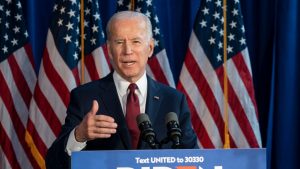The British Columbia Chamber of Commerce held a panel at the Fairmont Waterfront in Vancouver on March 6 focused on Liquefied Natural Gas and specifically an LNG refinery near Kitimat, B.C.
The British Columbia Chamber of Commerce held a panel at the Fairmont Waterfront in Vancouver on March 6 focused on Liquefied Natural Gas and specifically an LNG refinery near Kitimat, B.C.
The panel consisted of Geoff Morrison from the Canadian Association of Petroleum Producers, Trevor Davis, south coast area manager of Western Canada Marine Response Corporation, and Tom Sigurdson of the BC Building Trades.
Morrison began by explaining the significance of the Alberta oilsands to B.C. He said that B.C. is a “natural gas story” but that oilsands production is dominant in Western Canada.
Morrison added that when an oilsands project begins there are already plans in place to reclaim the land once the project is completed. He said the oil and gas industry is a key driving force in the Canadian economy, with 75,000 jobs (and growing) created, growing to 905,000 in 2035 directly, indirectly and with industry across Canada.
Morrison added many workers “fly in and fly out” to the oilsands from British Columbia, and those workers pay taxes in B.C., not Alberta. Additionally, suppliers in British Columbia are sending the bulk of their product to Alberta.
Oil dependency in the United States is also falling, so we need to take advantage of other markets such as China and India, Morrison said.
Davis addressed the concern of potential oil spills and other accidents on the West Coast. He said WCMRC has been in operation since 1976 and are the only mandated response force for oil spills on the West Coast. The company has 500 available responders, and is industry funded and government regulated.
WCMRC has refined product recovery equipment and heavy oil recovery equipment, Davis said. He pointed to the Westridge oil spill in Burnaby in 2007, whereWCRMC spearheaded clean-up operations which continued for about 3 months and was monitored for 18 months.
Tom Sigurdson of the BC Building Trades also spoke, and said that while his organization and the BC Chamber of Commerce often have different interests, in the case of the energy sector both have mutual interests.
One of the biggest sources of work for skilled labour in future will be energy projects, Sigurdson said. He added his organization has approximately 34,000 people registered with the Industry Training Authority, 8,500 of whom are in the construction trades, with half that in the BC Building Trades.
A pipeline and upgrader are “a conduit that transports a product but does much more,” Sigurdson said. He said local, permanent jobs will be the result of the pipeline project, as well as enhanced opportunities for First Nations workers and more skills training to address market needs.
These cannot be jobs that rely on temporary foreign worker programs, Sigurson said, because “local people have a right to work in their own backyard.”
There is a demand now, and we will not be “held hostage” to the American market if we proceed with LNG in B.C., Sigurdson said.
JOC DIGITAL MEDIA










Recent Comments
comments for this post are closed